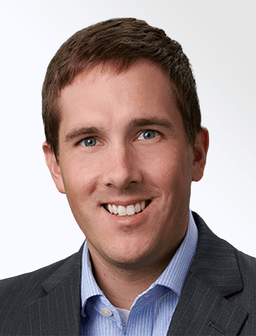Understanding Your Role as an ERISA Plan Administrator
ERISA Plan administrators and sponsors act as fiduciaries, holding the highest level of responsibility, integrity, and good faith required by law. As a fiduciary, you have a legal obligation to provide the highest standard of care and service on behalf of your plan’s participants. Due to the significance of the retirement assets under your oversight, the Department of Labor (DOL) expects plan administrators to maintain exceptional standards and accountability. To help you navigate these complex regulations and ensure your plan meets the highest standards, we’ve outlined some best practices below.
A To-Do List for Plan Administrators and Sponsors
Under fiduciary standards, here are some responsibilities and best practices:
Exercise prudence and discipline in your decision-making process. This applies to the selection of managers, advisers, and the overall administration of your plan.
Refrain from self-dealing of any kind.
Act solely in the best interests of the participants in your plan. Your sole objective must be to provide benefits for employees.
Never accept gifts from fund salespeople that could be considered a bribe or kickback.
Keep plan assets diversified among many different asset classes.
Monitor plan expenses (expense ratios, mortality and administration charges) to make sure they are reasonable.
Follow the terms and provisions of the plan document.
It’s important to understand that as a plan administrator, you are not expected to be a subject matter expert in every pension, investment or health insurance issue that comes up. You're permitted and, in fact, encouraged, to hire outside professional advisers in your role as a fiduciary. However, you must still provide oversight of the decision-making and asset allocation processes.
Tips for Plan Administration Professionals
Here are ways plan administrators can demonstrate they're acting with the highest level of responsibility, fair dealing, and good faith:
Set up an appeals and grievance procedure and ensure its publicized to plan members. It should be easy to initiate a complaint.
Contact your employment benefits consultant or benefits professional to conduct a periodic compliance review of your plan.
Create a written investment policy statement and stick to it.
Make all investment decisions in accordance with your investment policy statement and other plan documents.
Develop written procedures and criteria for selecting plan vendors. Make your criteria as objective as possible.
Request that the plan sponsor purchase Directors and Officers insurance to help shield you and other members of the plan administration team from personal liability that may arise from decision-making.
Provide at least three distinct investment options for 401(k) investors to choose from. For example, you might offer higher-risk, moderate risk and risk-free options (guaranteed investment contracts or money market funds).
Conduct a periodic review of your compliance with COBRA. This by itself can be a substantial project, as you have to keep track of changing eligible family beneficiaries.
Double-check your information and data security provisions. The Health Insurance Portability and Accountability Act imposes a series of specific and implied tasks on plan administrators, technology and managerial employees designed to protect personally identifiable information related to health care and status. Failure to protect this information could result in devastating penalties for an employer.
It’s always recommended to maintain thorough documentation of all decisions.
Plan governance should meet regularly to consider relevant plan decisions and take detailed meeting minutes supporting that you are performing your plan oversight duties as required by DOL regulations.
Empower Your Team While Securing Their Futures
As an ERISA plan administrator, your role as a fiduciary is essential to the integrity and success of your retirement plan. By adhering to best practices, diligently overseeing plan decisions, and seeking professional guidance when needed, you can help ensure the plan serves the best interests of its participants while meeting DOL standards. Thoughtful and responsible administration not only protects the plan’s assets and fulfills fiduciary obligations, but also empowers your employees to plan confidently for their futures.
Reach out to CSH for additional support and guidance. We are committed to helping you make a lasting impact on both the employees and the organization you support.



